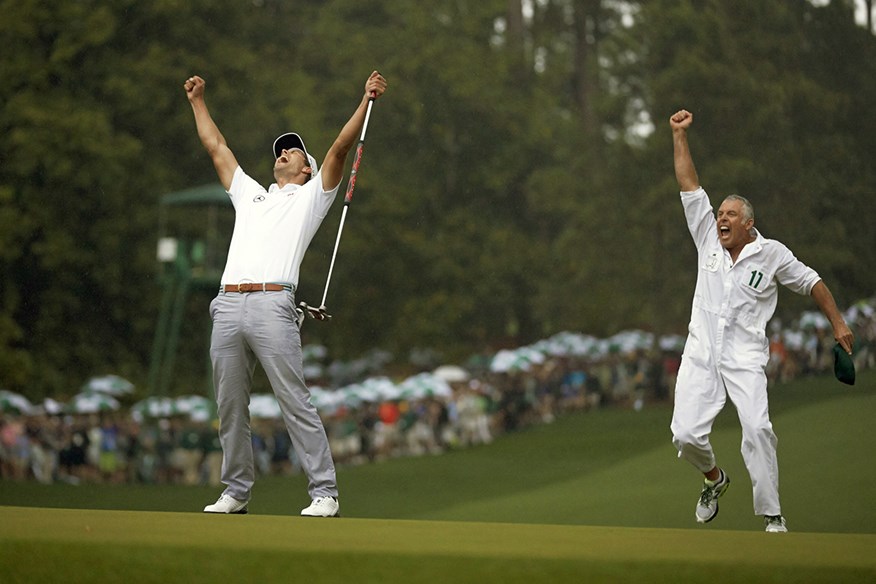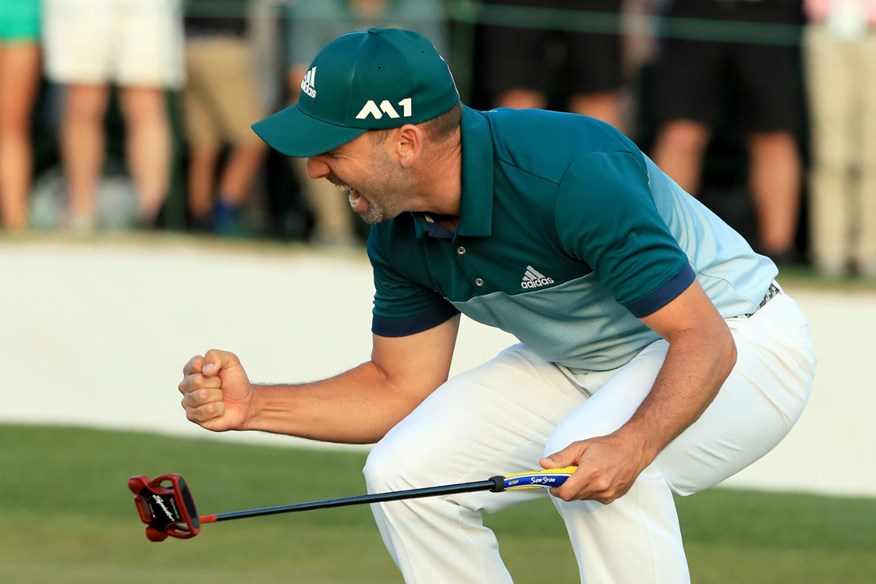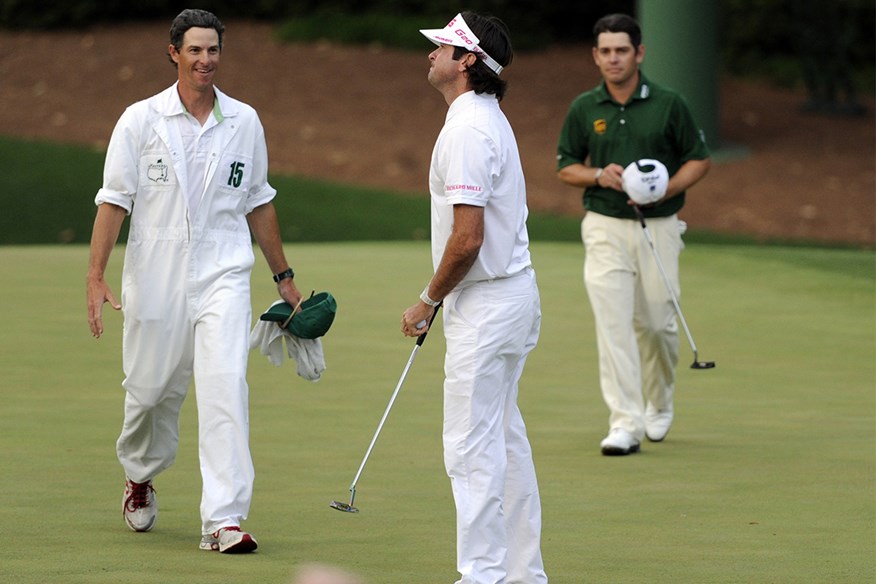What happens at the Masters in the event of a tie? Augusta’s playoff format explained
Last updated:
It doesn’t happen often, but what happens in the event of a tie at the Masters? We take a look at the playoff format at Augusta National
There is nowhere like the Masters, a tournament unlike any other, it prides itself on being the most illustrious major of the year. So, why would a tournament like this not adopt a playoff of the highest pressure?
With a crowded Masters leaderboard on Sunday, you may be asking yourself, how do they choose a winner if they’re tied? Well, we have the answer. Much like the PGA Tour if two or more players are tied after the 72nd hole the golfers involved will head to a sudden-death playoff.
This means that the first player to win a hole will be crowned champion and be putting on the Green Jacket that evening. It’s the most nail-biting way for a tournament to end with two or more golfers going head to head to win the hole and it’s done there’s no coming back from it once a hole is won.

Types of playoffs
There are two types of extra hole and playoff formats used in golf. They are as follows:
Sudden death: PGA Tour events use a sudden-death format where the first play to win a hole wins the tournament. The holes played depend on the tournament, but at the Masters, they are the 18th and 10th holes.
Aggregate: This format is less common but is used at the other three majors on the PGA Tour — the PGA Championship, US Open, and The Open. In aggregate playoffs, select holes are picked after the 72-hole tournament concludes. Players will then play a certain amount of these holes – usually two or three – and the aggregate score on these holes determines the winner. If they cannot be separated, then a sudden-death playoff ensues.

What is the Masters playoff format?
For many years, the Masters playoff format was played on the Monday. (There was no golf lottery in those days!) It was originally 36 holes – which happened on one occasion – and later 18, which was utilized on five occasions.
Augusta National adopted a sudden-death playoff to determine the winner of the Green Jacket back in 1977.
The playoff starts on the 18th hole at Augusta. If a winner is not decided after two times down the 18th, it moves onto the 10th hole.
This two-hole cycle is repeated until a winner is determined.
The 18th and 10th holes run parallel to one another on the course.
These two holes not only keep the patrons together but it give them the best chance to watch the action in the event of a playoff.
Masters Playoff history
| YEAR | WINNER | RUNNER(S)-UP | TOTAL HOLES |
| 1935 | Gene Sarazen | Craig Wood | 36 |
| 1942 | Byron Nelson | Ben Hogan | 18 |
| 1954 | Sam Snead | Ben Hogan | 18 |
| 1962 | Arnold Palmer | Gary Player, Dow Finsterwald | 18 |
| 1966 | Jack Nicklaus | Tommy Jacobs, Gay Brewer | 18 |
| 1970 | Billy Casper | Gene Littler | 18 |
| 1979 | Fuzzy Zoeller | Ed Sneed, Tom Watson | 2 |
| 1982 | Craig Stadler | Dan Pohl | 1 |
| 1987 | Larry Mize | Seve Ballesteros, Greg Norman | 2 |
| 1989 | Nick Faldo | Scott Hoch | 2 |
| 1990 | Nick Faldo | Raymond Floyd | 2 |
| 2003 | Mike Weir | Len Mattiace | 1 |
| 2005 | Tiger Woods | Chris DiMarco | 1 |
| 2009 | Angel Cabrera | Kenny Perry, Chad Campbell | 2 |
| 2012 | Bubba Watson | Louis Oosthuizen | 2 |
| 2013 | Adam Scott | Angel Cabrera | 2 |
| 2017 | Sergio Garcia | Justin Rose | 1 |


